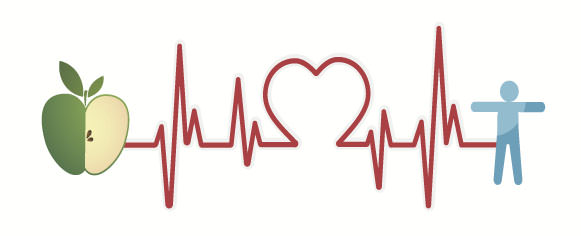Fasting, Benefits of Fasting, Healthy Lifestyle
Fasting is good for Health- The age old Religious Tradition gets support from Scientific Evidences
In almost every religion, there are specified days or periods of time where it is advised to go without food or avoid certain categories of foods. This actually works in favour of our health.

Overview
Fasting is one of the ways to give your body a break and let it get rid of the toxins being accumulated. Consuming no food helps your body get rid of unwanted toxins paving the path for better health.
We are aware of the fact that the body’s fuel source is glucose-blood sugar. A lot of glucose is obtained by the body through the consumption of sugar and carbohydrates like bread or parathas or other carb rich foods. It is important to know that our body can burn another type of fuel known as ketones. When we fast or intake limited foods, our body runs out of glucose and starts burning the already accumulated fat which leads to creation of ketone molecules. Our body is capable of switching fuel sources without breaking down muscle. This results in burning of excess fats, in other words, getting rid of accumulated toxins. Additionally, if you work-out during the fasting period, you can strengthen your body’s fat-burning capacity.
How fasting helps in maintaining good health
There are certain non-communicable diseases such as diabetes, hypertension, high cholesterol, obesity and cancers which are all lifestyle disorders and the primary modality of treatment prescribed is lifestyle management. Lifestyle management is a science that works to integrate lifestyle-based healthy habits into the course of a person’s daily routine.
Eating healthy food, maintaining moderation in diet, abstinence from habit-forming behaviour such as smoking and consumption of alcohol, regular physical activity and stress busting are the various components of lifestyle management.
Fasting, no matter the religion, has always considered these factors which shows its significance in maintaining good health.
Hindus have various fasting practices all through the year, popularly referred to as vrat, viradham or upavasa based on the lunar calendar. The degree of fasting may vary- from skipping a meal a day to eating only one meal a day or for a specified number of days, usually 48 days (Mandalam period for Sabarimala pilgrims).
Sometimes, fasting entails sustaining on vegan diets similar to the Mediterranean diet during certain months such as the Tamil month of Purattasi.
Selective avoidance of salt (a salt-free diet) on some days is a commonly observed practice. Salt is essential for life, but in excess is injurious to health.
Sikhism also has various periods of fasting, and the Langars, or community kitchens, in gurdwaras serve simple and healthy vegetarian food, though Sikhs are not disallowed from consuming non-vegetarian food.
Similarly, Christians and Muslims, fast for long hours during the religious penitential period of Lent and Ramzan, respectively. It is also a time of repentance, abnegation and spiritual discipline. During the holy period, most people give up eating the food they like most or abstain from other indulgences, apart from sex, alcohol and smoking- the “popular sins”. This period varies from one month to 40 days.
Several other religions have their own fasting regimens suited to their region, customs and beliefs.
Ayurveda, a popular ancient science that began in India, considers fasting as an effective way to burn away the accumulated toxins from the body and mind. It also helps in improving mental clarity and preserves overall health.
Infact, there have been extensive studies and researches being carried out for decades across the globe to understand the significance of fasting and religious practices in general in maintaining food health. One such study was published in July 2022.
Additionally, extensive research conducted by University of California at Berkeley, University of Southern California and Chicago’s Mount Sinai, shows that intermittent fasting may help prevent and treat cancer. They explain how this happens, during a fast the cells in our bodies go into a protective mode, while cancerous cells continue their robotic growth. The state of fasting is hostile to cancer cells in part because their fuel, which is glucose, disappears from the bloodstream. (Source)
The right way to fast
Most of us also indulge in taking in carbs in other forms on days of fasting. Like sabudana khichdi, poha or upma, it is best to consume fresh fruits, vegetables and milk on days of fasting. This will help you burn calories and detoxify your body. For first timers it is best to try out one day fasts.
Here are some tips for first time fasting:
- Your diet should consist of mostly raw foods, such as fruits, vegetables, seeds and nuts.
- Avoid dehydration by consuming at least 7-8 glasses of water daily.
- A fundamental rule is to absorb all the “prana” (life-force energy) from the foods and to drink fluids slowly.
- Foods must be light and easily digestible.
- To benefit from fasting, consume food in small quantities. Eat how much you need and not a grain more.
- Drink fresh sugar-free juices and lots of water to prevent constipation.
Bottomline
Fasting has several health benefits and if done right, helps in achieving a healthy body and a clear mind.
Reference
- https://jamanetwork.com/journals/jama/article-abstract/2794049
- https://www.cancercenter.com/community/blog/2021/06/fasting-cancer





































































































